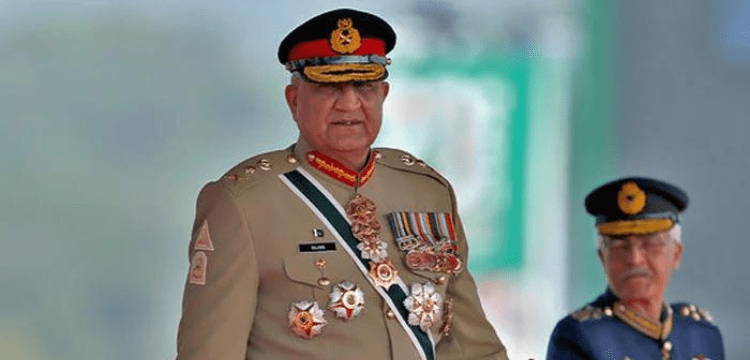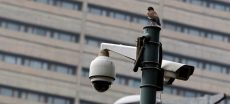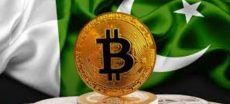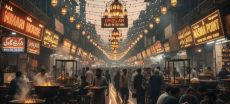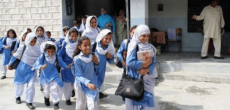[vc_row][vc_column][vc_column_text dp_text_size=”size-4″]In a reported interview with a local media outlet, former army chief General (retd) Qamar Bajwa stated that he was not responsible for the disqualification of former prime minister and PML-N supremo Nawaz Sharif.
When Bajwa’s case was heard by the Supreme Court, he was asked if he was responsible for Nawaz’s disqualification. He responded that the Supreme Court had begun hearings on the Panama Papers during the PTI’s second long march prior to his appointment as army chief.
He insisted that the army could not control everything and that the SC was doing “a lot of things.”
When asked if former ISI chief General Faiz Hameed could pull off the feat on his own, the ex-COAS replied, “when you are asking someone to do eight things, and if he does ten, you cannot ask him.” He went on to say that the phenomenon occurred all over the world, with intelligence agencies doing a variety of things of their own volition.
The interviewer asked again if Bajwa disqualified Nawaz, and his response was the same.
“It was the decision of the five judges of the Supreme Court. When the judges give an order, what can you do? Justice Khosa also had a personal enmity with the Sharif family. Shahbaz Sharif divorced Justice Khosa’s sister in the nineties,” claimed the former army chief in the interview..
He questioned how he could disqualify Nawaz when it was the PML-N leader who appointed him as army chief. He went on to say that Nawaz Sharif was always “good and decent” to him and that the army had “nothing to do with Nawaz Sharif’s disqualification.”
According to Bajwa, the SC assigned the task of bringing evidence to the army, so the evidence was provided by the army. He claimed that General (retd) Asim Munir had good relations with Arab countries and was sent to the UAE by him to bring back the iqama that led to Nawaz’s disqualification.
The interviewer then asked if the UAE was “angry” with Nawaz for not supporting them in the Yemen war, and thus Nawaz’s iqama was revealed.
The former top soldier responded that there was no such thing, and that the iqama was given because it was discovered.
“When the Panama case was being heard in court, [former Prime Minister] Shahid Khaqan Abbasi approached me and drove me to Daman Hill.” We had been sitting there for three hours. He stated that we needed to assist Nawaz in the Panama case. “I told him that I couldn’t help him much because he had made so many mistakes,” he explained, reiterating Sharif’s mistakes in the case.
Read More: PM orders to withdraw baseless curative review against Justice Isa.
He stated that Chaudhry Nisar had also forbidden Nawaz from writing a letter to the Supreme Court for a joint investigation team (JIT) and urged him not to include ISI and MI officers in the JIT, but Nawaz did not agree to this.
“I also sent a message to four or five people to ask Nawaz to oppose the inclusion of army officers in the JIT, but Nawaz was very confident and did not agree. Nawaz was sure that he had all the documents. He also wanted to stop the army for his honesty. But the problem was that if Nawaz Sharif was acquitted, all the rubble would fall on the army,” Bajwa said.
He continued that the SC decided to form a JIT, so he called the Director-General ISI (DG-ISI) and said that the army should get out of this case, but the DG contended that their involvement was an order from the SC.
The interviewer inquired how the disqualification occurred and if there were any ‘just judges’ in the SC.
He responded that the army was also fair, and that generals were fair before some fell “in love with Imran Khan.”
“However, I was under pressure during PML-N for three reasons.” Musharraf was imposed under Article 6 by the PML-N government. Then came the Panama Papers, and the “thief prime minister” was widely chastised in the media. Following the withdrawal of Dawn Leaks’ tweet, there was internal army pressure. “After Dawn Leaks’ tweet was removed, Maryam Nawaz’s strategic media cell claimed that the army had retreated for the second time since 1971,” he said, adding that this was one of the reasons he couldn’t help Nawaz much.
The interviewer then inquired if Shahid Khaqan Abbasi would leave the PML-N, to which Bajwa said that he would not and that Abbasi was a very capable man who did a “great job” as the prime minister. He added that Abbasi also understood the economy very well.
When asked about the Dawn Leaks, Bajwa said that after he became the chief of the army and went to meet the premier at the prime minister’s house, there was “a lot of talk of the Dawn leaks”.
“One thing the political parties do not understand is that the army chief was very important, and the army never compromised on its former army chief. When Article 6 was imposed on General Musharraf, the army turned against Nawaz and then the army even saved Musharraf. Musharraf would sometimes disappear on the way to court and then would arrive at the hospital,” he said.
Dawn Leaks
Discussing “his side of the story” about the Dawn leaks, the ex-COAS said that when he became the army chief and went to meet Nawaz, Nisar said Dawn leaks must be brought to a logical conclusion, meaning a complete end to the inquiry – which Bajwa agreed to.
Later, Nisar reiterated the same statement, after which Bajwa called then DG-ISI Naveed Mukhtar and asked for the result of the Dawn Leaks inquiry. He stated that Mukhtar said there was some evidence that journalist Cyril Almeida spoke to Pervez Rasheed on the phone for 70 minutes, but the conversation was not known.
Bajwa stated that in fact, there was “nothing” in the Dawn Leaks, but wherever he went, junior officers used to ask questions.
“After that, I spoke to Chaudhry Nisar and Ishaq Dar that they send the case of journalists to CPNE because I did not want to touch the hornet’s nest”.
He continued that it was decided to take administrative action against the rest, after which he went to Nawaz and tried to convince him to let Pervez Rasheed go, which he [Nawaz] ultimately agreed to and it was decided that Pervez Rasheed and Tariq Fatemi would be removed from their posts. He added that the case of the journalists will be sent to the CPNE and departmental action would be taken against the rest.
“However, a day later, I went to Lahore, and suddenly the notification of Dawn Leaks started playing on another news channel. The channel started saying that the government did not punish the co-accused and the government issued an incomplete notification”.
Bajwa went on to say that the media put a lot of pressure on the army, so he called General (retd) Asif Ghafoor, who issued a tweet saying that the notification was’rejected’ on his own.
“I left on the same day I was supposed to go to Fata, and then I got a call saying the prime minister wanted to meet with me.” When I arrived at the prime minister’s residence, Nawaz Sharif greeted me. I expected him to be angry and express his displeasure, but he said nothing.”
According to Bajwa, at the end of the meeting, Nawaz only asked that he [Bajwa] not make decisions in anger.
“It occurred to me that something had gone wrong. Two days later the premier was to go to China. Now generals and political leaders started coming to me saying that I should not take back the tweet,” he added that Khawaja Asif and other Muslim Leaguers came and said he should not withdraw the tweet.
“But I could not send the prime minister of the country to China in an inferior position. What would be the status of such a prime minister in China who did not even have his army at his disposal, so the tweet was withdrawn”.
Army Generals
Interviewer said, General (retd) Naveed Mukhtar was a gentleman who was not overly powerful, while General Faiz did all of the work. He wondered if this was because Bajwa gave Faiz authority and power.
This, according to the former army chief, was the case, and they were obsessed with “bringing in” PTI chief Imran Khan.
“It was claimed that General Raheel Sharif created the Dawn Leaks issue in order to obtain an extension, and that there was nothing in it.” When Dawn asked Nawaz about the leaks, he said, “Whenever General Raheel and General Rizwan Akhtar came for a meeting, they used to talk about General Raheel Sharif’s extension.”
Rizwan told Nawaz in front of General Raheel to give him a three-year extension, but after Raheel left, he told Nawaz to give him only a one-year extension because Rizwan was next in line after Raheel.
When asked how he forgave Rizwan and Asim Bajwa, the former COAS replied that he would forgive whoever came before him.
“I wanted to remove General Rizwan from ISI and command him, but I heard he was constantly interfering in politics.” His actions were reported two or three times, and some of them involved corruption. As a result, he was fired,” he explained.
He claimed that because Asim Bajwa asked for forgiveness, he was forgiven and given Southern Command. He added that incumbent COAS Asim Munir frequently stated that Bajwa forgave people, but he [Gen Munir] did not.
Asim Bajwa, according to Bajwa, had put Raheel Sharif on the verge of becoming a hero, despite the fact that no bullets were fired in Zarb-e-Azb.
“Then General Raheel Sharif launched an anti-corruption campaign.” I was also under pressure as a result of this campaign after the Panama Papers were revealed.”
He claimed that during the Panama trial, he sent a message to Nawaz through Shujaat Azim and Chaudhry Munir asking him to resign in order for him to be re-elected as prime minister in the next elections.
“It was a very sincere suggestion from my end, as I was repeatedly approached by PML-N sympathisers.”
He went on to say that PML-N leaders persuaded Nawaz to resign, but Maryam Nawaz refused.
“A man must live today in order to fight tomorrow.” To win, one must take a step back, which Nawaz Sharif did not,” he said, adding that he had not spoken to or met Nawaz in five years, except to express his condolences on the death of his wife.
When asked if he had released Maryam Nawaz, Bajwa denied the claim, claiming that the charges against Maryam were weak.[/vc_column_text][/vc_column][/vc_row]

